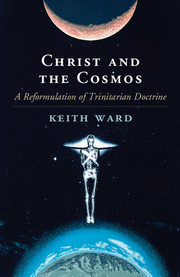Book contents
- Frontmatter
- Contents
- Preface
- Acknowledgements
- PART I THE THREEFOLD NATURE OF THE DIVINE BEING
- PART II THE BIBLICAL SOURCES OF TRINITARIAN THOUGHT
- PART III THE TRINITY, IMMANENT AND ECONOMIC
- PART IV THE SOCIAL TRINITY
- PART V THE COSMIC TRINITY
- 36 The Doctrine of Perichoresis
- 37 The Convergence of Social and One-Consciousness Models of the Trinity
- 38 Life-Streams and Persons
- 39 Modalism and Necessity
- 40 The Cosmic Trinity
- Bibliography
- Subject Index
- Name Index
37 - The Convergence of Social and One-Consciousness Models of the Trinity
from PART V - THE COSMIC TRINITY
Published online by Cambridge University Press: 05 September 2015
- Frontmatter
- Contents
- Preface
- Acknowledgements
- PART I THE THREEFOLD NATURE OF THE DIVINE BEING
- PART II THE BIBLICAL SOURCES OF TRINITARIAN THOUGHT
- PART III THE TRINITY, IMMANENT AND ECONOMIC
- PART IV THE SOCIAL TRINITY
- PART V THE COSMIC TRINITY
- 36 The Doctrine of Perichoresis
- 37 The Convergence of Social and One-Consciousness Models of the Trinity
- 38 Life-Streams and Persons
- 39 Modalism and Necessity
- 40 The Cosmic Trinity
- Bibliography
- Subject Index
- Name Index
Summary
The English philosophical theologian David Brown also prefers the conceptual model of three individuals of the same divine nature who are necessarily bound together in unity of action, or what he calls ‘unity of operations’ (Brown, 1985, p. 279). These individuals are ‘three distinct centres of consciousness, each with its own distinctive mental content’ (Brown, 1985, p. 289). By this he means that the Spirit derives knowledge of human hearts ‘from the inside’, as it inspires and transforms human lives; the Son experiences physical pain and human emotions, and the Father knows the cosmos as a whole. The Spirit and the Father do not suffer physically on the cross, and the Son, now enthroned in glory, does not act dynamically within nature and human lives to unite those lives to the divine.
At the same time, he writes, ‘though they have separate powers, to know the mind and will of one is to know that of all three’ (Brown, 1985, p. 293). This entails perichoresis in the fullest sense. It means that there is no experience of a divine person that is not known by all three, and there is no action or intention of a divine person that is not shared by all three. For instance, when the Spirit cooperates with a human will, and when it derives distinctive experiences from such cooperation, this is a distinctive mental content in that the Father and the Son do not directly initiate those actions or receive in an unmediated way those experiences. Yet they concur in initiating those actions, and both know exactly what it is like to have those experiences, wholly empathise with them, and accept them as their own. Moreover, each action and experience is only what it is precisely because these three subject/ agents act together in cooperative, essential, and complementary ways in every action and experience. When the Spirit inspires some human mind, the Father wills that this should occur and sustains that human mind in being, and the Son provides the pattern of life which the Spirit takes as its goal.
Brown briefly but significantly suggests that when the three persons act together in such ways (as they necessarily do), ‘the attributes that are unique to divinity are distributed among three persons rather than one’ (Brown, 1985, p. 300).
- Type
- Chapter
- Information
- Christ and the CosmosA Reformulation of Trinitarian Doctrine, pp. 232 - 238Publisher: Cambridge University PressPrint publication year: 2015



